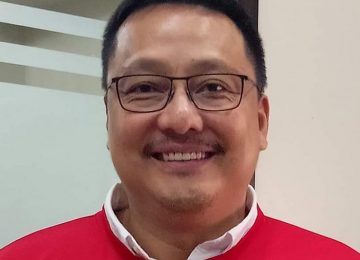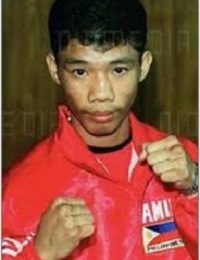Birthday: February 20, 1991
Birthplace: Zamboanga City
Height: 1.50 m (4 ft 11 in)
Weight: 54.90 kg (121 lb)
Parents: Eduardo and Emelita Diaz
CAREER HIGHLIGHT
- Gold Medalist, 2015 Asian Weightlifting Championships
- Silver Medalist, 2016 Rio Olympics
- Athlete of the Year, 2017 by the Philippine Sportswriters Association
- Gold Medalist, 2018 Asian Games
- Gold Medalist, 2019 SEA Games
- Four-time Olympian, 2008, 201 2, 2016 and 2020
- Gold Medalist, 2020 Tokyo Olympics
Hidilyn Francisco Diaz is a Filipino weightlifter and airwoman, the first Filipino to ever win an Olympic gold medal in a non-exhibition sport and an Olympic weightlifting record holder by winning the women’s 55 kg category for weightlifting at the 2020 Summer Olympics.
In her early weightlifting years, she was a bronze medalist in the 2007 SEA Games in Thailand and achieved 10th place at the 2006 Asian Games in the 53-kilogram class. While she was a student and representing Universidad de Zamboanga, she won two golds and one silver in the Asian Youth/Junior Weightlifting Championship held in Jeonju, South Korea. She competed in the 2008 Summer Olympics, where she was the youngest competitor in the women’s 58-kg category.
In the 2016 Summer Olympics, Diaz won the silver medal in the women’s 53-kg weight division, ending the Philippines’ 20-year Olympic medal drought.
On July 26, 2021, Diaz won the Philippines’ first Olympic gold medal at the 2020 Summer Olympics for the women’s 55 kg category for weightlifting, setting Olympic records for the 55 kg division in the clean and jerk at 127 kg and in the total at 224 kg.
Hidilyn Diaz is the fifth of six children of Eduardo and Emelita Diaz. Her father was a tricycle driver before becoming a farmer and a fisherman. She grew up wanting to be a banker and trying several sports, like basketball and volleyball. Her cousin, Allen Jayfrus Diaz, taught her the basics of weightlifting.
She attended the Universidad de Zamboanga where she pursued a bachelor’s degree in computer science. However, Diaz stopped attending the university as a third year irregular student as she found her degree unsuitable for her. She also claimed that it distracted her training. After her success in the 2016 Olympics, Diaz decided to continue her tertiary education and intended to pursue a degree related to sports in Manila.
In January 2017, Diaz received a scholarship to study business management at De La Salle-College of Saint Benilde.
In 2019, Diaz went on a leave of absence for her schooling as she had focused on Olympic Preparation after winning the Asian Games.
In 2020, Diaz had re-enrolled into online classes since the Summer Olympics had been postponed to July 2021.
After ending the country’s Olympic medal drought with a silver medal in the 2016 Rio edition, Diaz was quickly tipped to be the Philippines’ hope for a gold in Tokyo.
Get to know how Diaz became the trailblazer in Philippine weightlifting and how she made a big impact on the local sports scene.
She started weightlifting with homemade barbells. Before turning into a weightlifting superstar, Diaz had humble beginnings.
Her cousin Allen Jayfrus Diaz introduced her to the sport using homemade barbells made with plastic pipes and concrete weights shaped in tin cans.
Though she experienced selling vegetables and fish with her father, who worked as tricycle driver, the young Diaz was very enthusiastic about sports as she tried basketball and volleyball as well.
But as she concentrated on weightlifting, it also opened doors to countless opportunities, like being able to travel around the world and earning a scholarship at Universidad de Zamboanga.
She studied in the school until college, where she pursued a degree in computer science, but she dropped out after her third year to concentrate on the sport.
This is her fourth straight Olympics
The Zamboanga native was a weightlifting prodigy as she made her Olympic debut at 14 years old in the 2008 Beijing Games. She earned a wild card entry and was the youngest in the delegation.
Diaz qualified once again in the 2012 London Olympics, but recorded a devastating “did not finish” result.
But she rebounded in a big way in the women’s 53kg event of the 2016 Rio Olympics, where she made history as the first Filipina Olympic silver medalist.
The 30-year-old weightlifter again managed to secure a Tokyo 2020 berth after she completed the six required Olympic qualifiers in the 2021 Asian Weightlifting Championships to seal her fourth straight Olympic appearance.
Coming into the Tokyo 2020 Olympics, Diaz – who is competing in the women’s 55kg event – is coached by Team Hidilyn Diaz (HD) which is composed of Chinese coach Gao Kaiwen, strength and conditioning coach Julius Naranjo, nutritionist Jeaneth Aro, and sports psychologist Karen Trinidad.
Hidilyn Diaz joined the Philippine Air Force (PAF) through the direct enlistment program in 2013.
Starting out as part of the Air Force Special Service Group, Diaz was eventually promoted from Airwoman to Airwoman second class the following year.
After her 2016 Rio Olympics victory, Diaz was given another promotion to Airwoman first class.
She is currently an Airwoman sergeant after her golden conquest in the 2018 Asiad.
Hidilyn Diaz also received several awards in her military tenure, which include the military merit medal, Presidential citation unit badge, and outstanding recognition for her podium finishes in major events.
Hidilyn Diaz has always planned ahead in preparation for her life after sports.
After the 2016 Rio Olympics, she opened a home solutions business called HD Cleaning Services PH.
In 2019, Hidilyn Diaz launched a healthy snack venture called Komida Foods in partnership with chef Allan Jose, who prepared all her meals leading up to the 2016 Rio Olympics.
With Komida, Hidilyn Diaz aims to make healthy food available and affordable to everyone, especially athletes and fitness enthusiasts.
2020 Summer Olympics
On July 26, 2021, Hidilyn Diaz won the gold medal at the 2020 Summer Olympics in Tokyo. This was the first ever gold medal won by a Filipino athlete since the country’s first appearance in the Olympics in 1924. She set new Olympic weightlifting records by lifting 127kg in the Clean and Jerk and lifting a total weight of 224 kg.
Hidilyn Diaz’s achievements at the 2020 Summer Olympics were remarkable, as she was previously stranded in Malaysia from February 2020 until July 2021, due to travel restrictions imposed by governments to contain the COVID-19 pandemic. Based on guidance by her coach, Gao Kaiwen, Diaz initially went to train in Malaysia in February 2020 because Gao thought it would be better for her as she focused on qualifying for Tokyo. However, once Malaysia implemented its Movement Control Order in April 2020, which closed gyms within the capital region of Kuala Lumpur (Klang Valley), she improvised by using bamboo sticks and large water bottles as makeshift weightlifting equipment. In October 2020, she relocated to the southern coastal state of Malacca where they have been living in a house owned by a Malaysian weightlifting official in Jasin. However, the Malaysian government later implemented periodic restrictions on gyms and sporting activities within 2021 (to reduce social interaction and contain the spread of the coronavirus), forcing her to work out in the house’s sweltering open-air carport in the immediate months prior to the 2020 Summer Olympics.
Hidilyn Diaz also fought mental breakdown during her ordeal, especially with the postponement of the 2020 Olympics, and credits her team, including sports psychologist Dr. Karen Katrina Trinidad and Project: Steady with trauma therapist Gang Badoy Capati for her well-being. She also kept busy during her training overseas during COVID-19 lockdown by cooking, attending meetings, and studying.
In recognition of winning the first gold medal for the Philippines at any Olympic Games, she was awarded PHP 35.5 million (approximately US$660,000) along with a house and a lot. The financial and asset awards, were jointly given by both the national government and tycoons from the private sector. Under Philippine law, the Philippine Sports Commission guarantees a 10 million-peso incentive for every Olympic gold.









